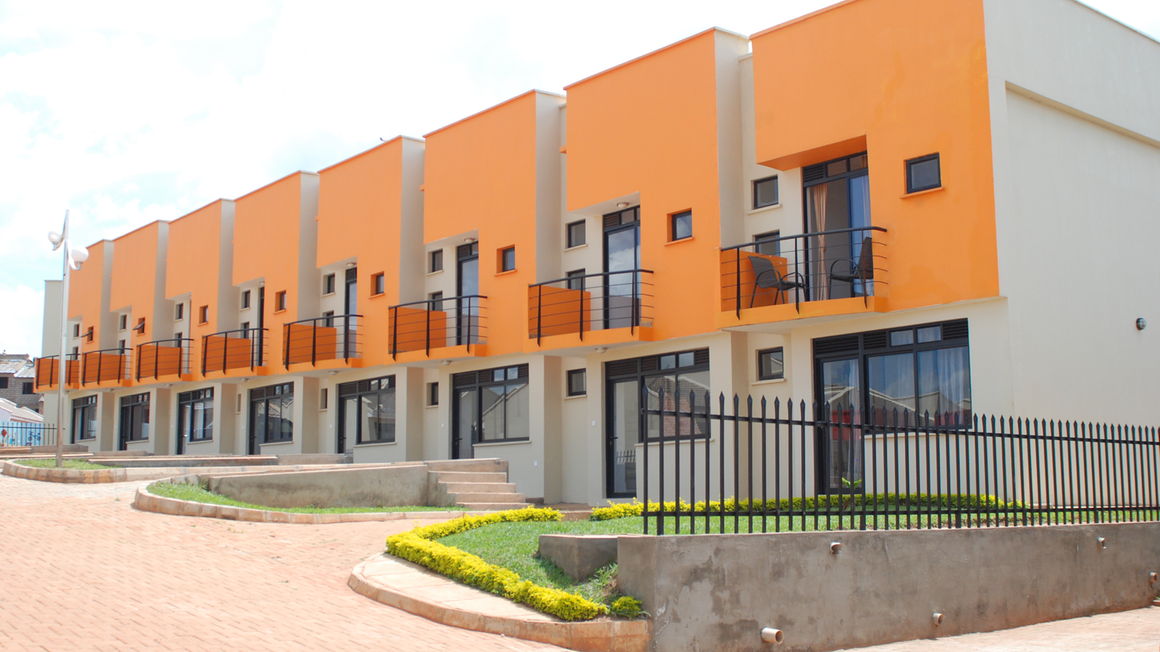Unhappy tenants can be a problem for first-time landlords. Being inexperienced, and sometimes underestimating the significance of skilled counsel from property managers, can be among the reasons your tenants don’t stay.
In a recent article by the Daily Monitor, Florence Bbale Nambooze, a property manager, says that it is usually after landlords encounter difficulties that they contact professionals to learn how to handle and avoid such problems.
In this article, Ms Bbale digs into the potential reasons your tenants don’t stay, and provides solutions for keeping them.
1. Unjustified Increase in Rent
Landlords want to recoup money on their investment properties as quickly as possible. However exorbitant rent, or an unjustified or unreasonable increases in rent, will cause tenants to vacate.
Tenants will check with their neighbours to see how much they pay. If they find the neighbouring houses of equal or better standard are cheaper than the house they are renting, they will consider leaving. If you are a landlord, you must consult your neighbours and brokers about the standard prices in your area.
“Sometimes the brokers hike the rent because they want to get more commission from the landlord, not knowing that it will affect the landlord in the future. And this also stops clients from occupying the houses because the rent is prohibitive,” says Ms Bbale.
2. Accessibility
Another reason a tenant may not stay is lack of accessibility. While some individuals choose to live outside of the city centre, they still want a reliable road system. Some developers build beautiful houses, yet don’t work on the feeder roads.
“Make sure that your house is easy to access, be it for pedestrians or those with private vehicles. Having a clear route that connects to the main road is an additional advantage. It is not wise to have a small pathway when you are expecting clients with vehicles,” Ms Bbale advises.
Failing to give proper access may make your tenants leave your rental, since they need access to markets, trading centres, major roads, and public services such as hospitals and schools. The inconvenience and resulting frustration from not having this access will make them look elsewhere.
Some estates have found a way around this by adding shops, restaurants and clinics into the complex, creating an autonomous community.
3. Sharing Utility Bills
Sometimes the landlord doesn’t allocate separate utility metres for every tenant, and instead insists that they share. This may bring many issues. Some tenants may wind up paying more, even though they have used less, and are left frustrated.
When the bill becomes due, some tenants do not pay or are late paying, which can lead to fines for late payment, or disconnection. The result is hostility and frustration among the tenants.
“Some landlords ignore tenants’ discomfort when it comes to utility bills, and when disconnected, they take a long time to reconnect, not knowing that it matters a lot. If this persists, tenants move out and look for another house,” says Ms Bbale.
Ms Bbale says each unit should have an independent electricity meter. Some tenants may have power-hungry electric gadgets and large families, so another tenant ends up paying for what he has not consumed.
4. Discomfort
Lack of basic facilities, such as adequate living spaces, indoor toilets, and daytime electricity, might cause tenants to leave your home.
“There are common facilities that a landlord must provide to attract tenants so that they feel at home, even if they are renting. But sometimes they ignore them even though they need money at the end of the month,” Ms Bbale noted.
Shared amenities, like toilets, can also be a problem leading to tenants looking elsewhere. No one wants to wait to use the washroom, or to have to deal with others’ mess.
According to Arthur Buyondo, Manager at Pentagon Management Services, located on Bombo Road, the better planned and plush an apartment is, the more attractive it will be for keeping tenants.
5. Security
Mr. Buyondo points out that security can be one of the biggest concerns for tenants. Not just the security of the rental, but the whole neighbourhood.
“Among the first questions people always ask is if the place is susceptible to burglaries. If the place has had some in the recent past, the client usually asks for another place,” Buyondo explains.
It is a landlord’s responsibility to make sure the estate is secure. Landlords can achieve this by constructing perimeter walls, adding barbed wire or electric fences, and hiring security guards.
6. Parking Space
Parking spaces either for residential or commercial housing are extremely important for tenants who own cars. Tenants may prefer a home with a garage, but at the very least the landlord should provide a secure space for tenants’ cars.
7. The Character of the Landlord
You need to be a responsible landlord. If you breach the contract you signed, which may have included making finishes, renovations, etc., your tenants will leave.
Landlords need to respond to their tenants’ complaints if there are repairs or issues that need to be taken care of. Esther Musinguzi, research and development officer Wilken Property Services, says landlords who do not want to repair their rental property usually discourage tenants. “That’s why we are strict on property repair so that the tenant gets actual value for their money. But it equally benefits the landlord because it attracts occupancy.”
Tenants want landlords to be responsive, but they also want their space and privacy. Some landlords hang around the rentals regularly and grumble about everything, which can make the tenants uncomfortable. Tenants value peace, without it they will leave.
Be a Real Muloodi landlord; a successful and responsible business person who attracts and keeps high-quality tenants.
READ MORE LIKE THIS:
Top 10 Property Management Companies in Uganda in 2021
Real Estate Businesses Must Move Toward Service-Oriented Future



